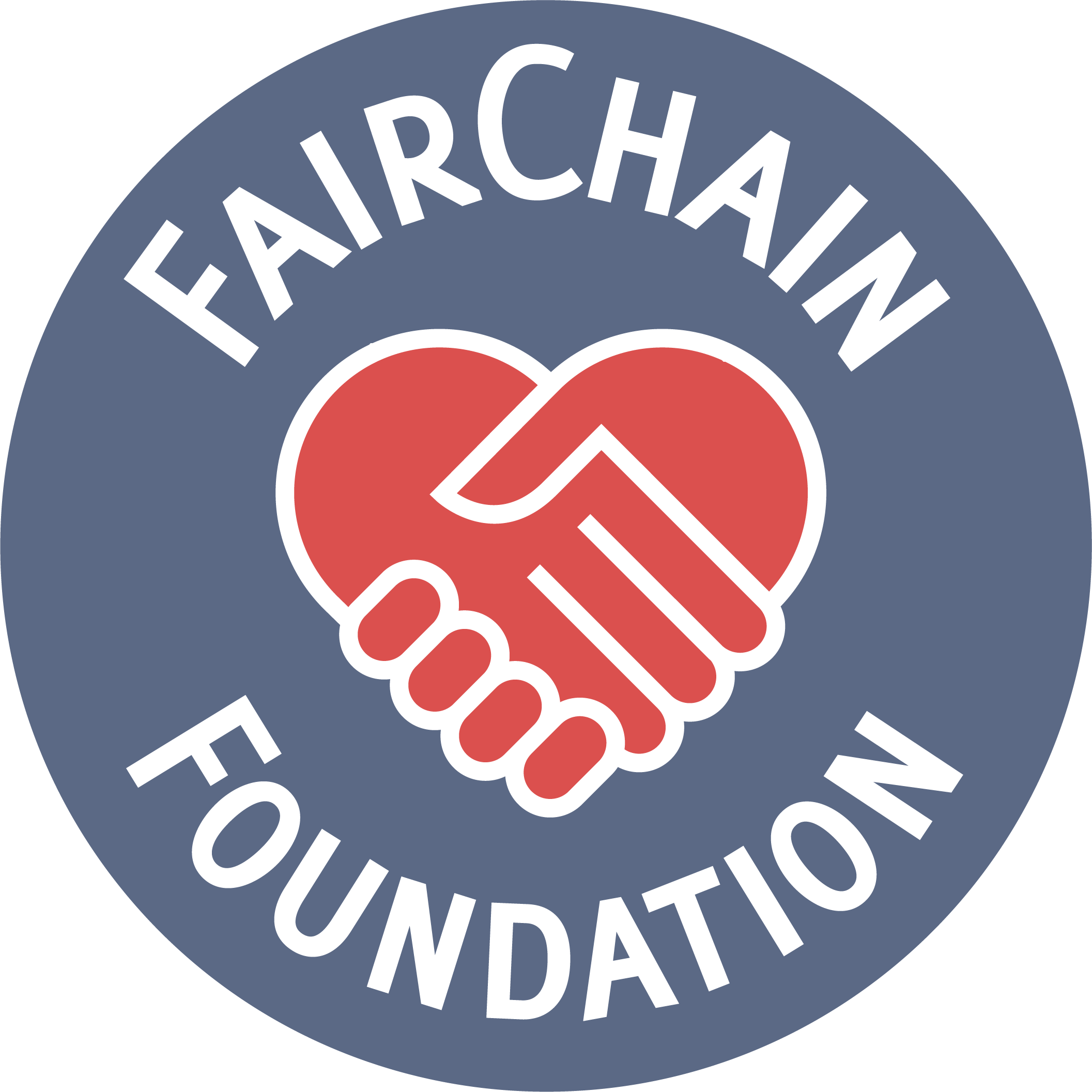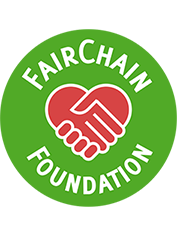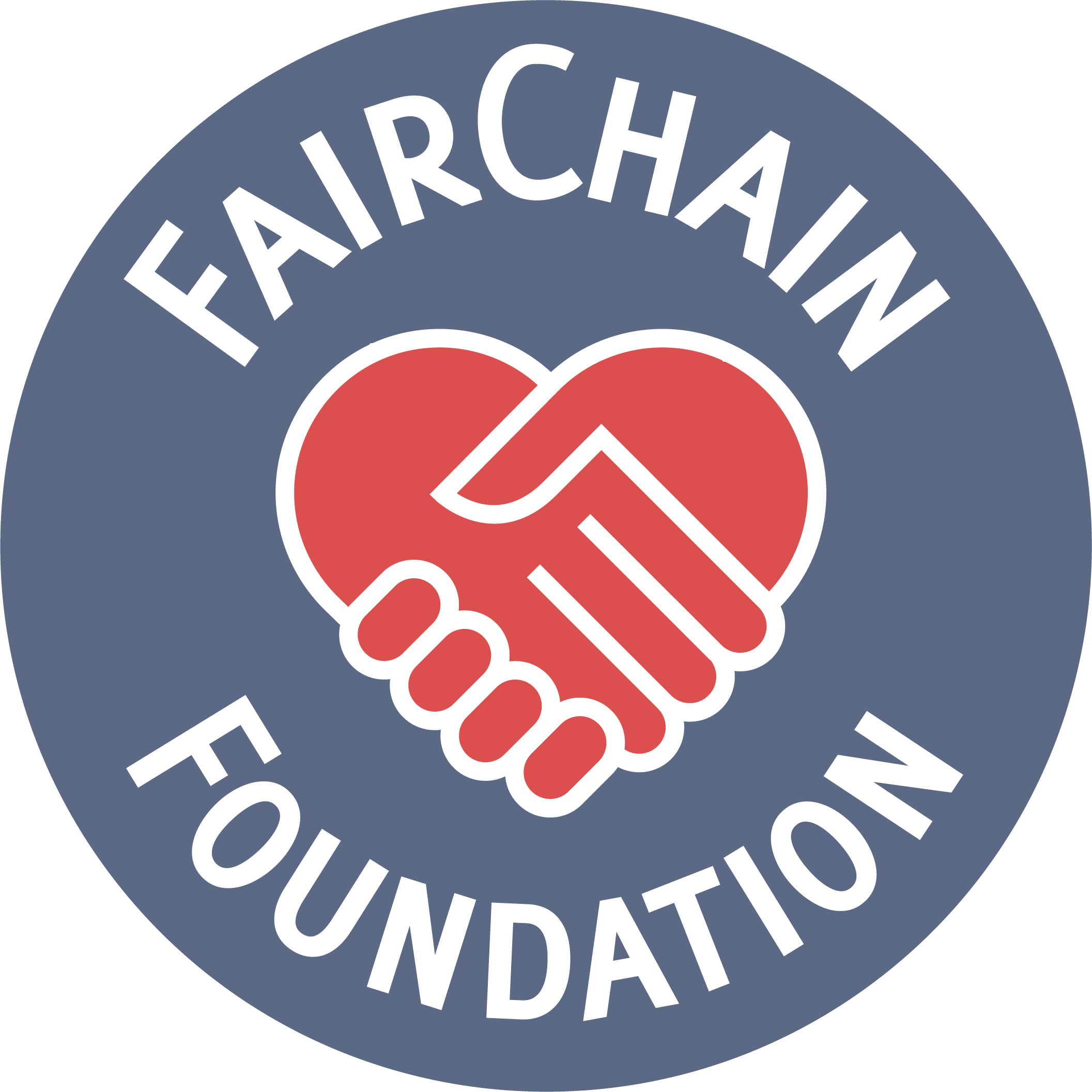FairChain's new insights on closing the income gap for small farmers
Welcome to our series on FairChain’s rebuilding process, our 2018 lessons, and the interventions we have planned starting this year. We are bringing exciting innovations into classical models which so far have been failing the 500 million small farmers. This new blog series will cover our trials and errors on the road to true prices and living incomes, using blockchain technology, and turning unprofitable small farmers into successful entrepreneurs. It all starts with coffee, in maybe one of the most challenging rural regions in the world: Limu, Ethiopia.
The coffee is processed and the data is in. FairChain recently closed another year of activities in Limu, Ethiopia. In November-December 2018, the FairChain washing station, serving as collection point for the second year in a row for Suntu and Weleke kebeles, purchased 211,000 kg red, ripe cherries from 425 small farmers.
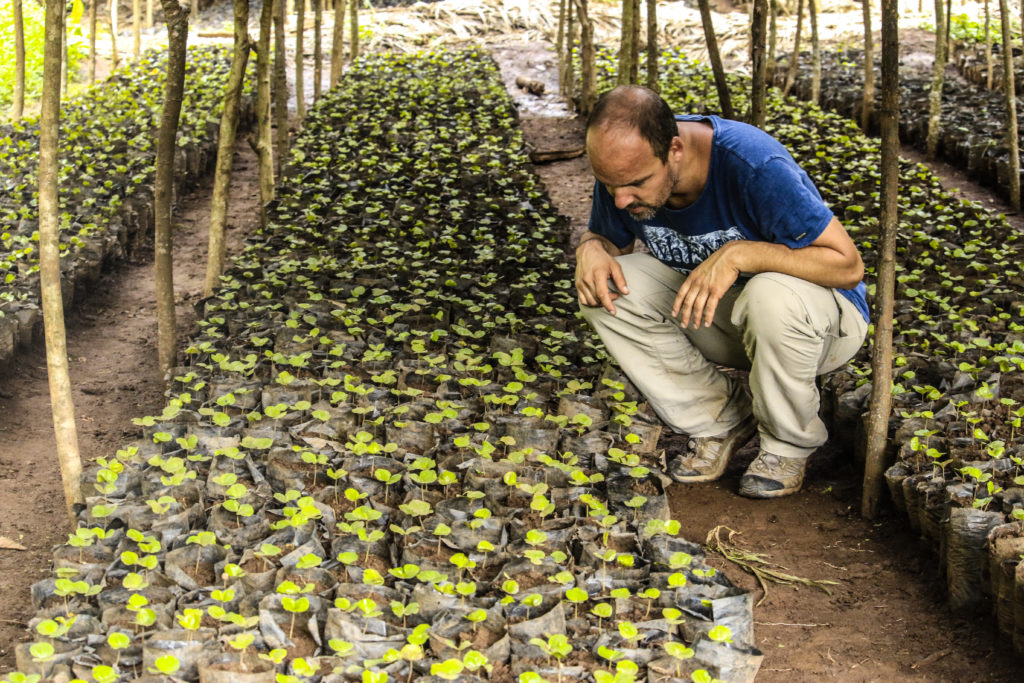
Trading coffee however, is not the reason FairChain entered this game. Our mission is much more ambitious, and we cannot stop repeating it. We are creating a movement for all those who share our ideals: building shared value chains with positive externalities. Throughout this blog series, this mission and how we hope to achieve it, will be laid out piece by piece. Our partners and potential partners, from institutional funders, to the coffee drinkers, and hopefully to the coffee farmers, should understand why FairChain is a thought leader in a global effort to rebalance broken chains.
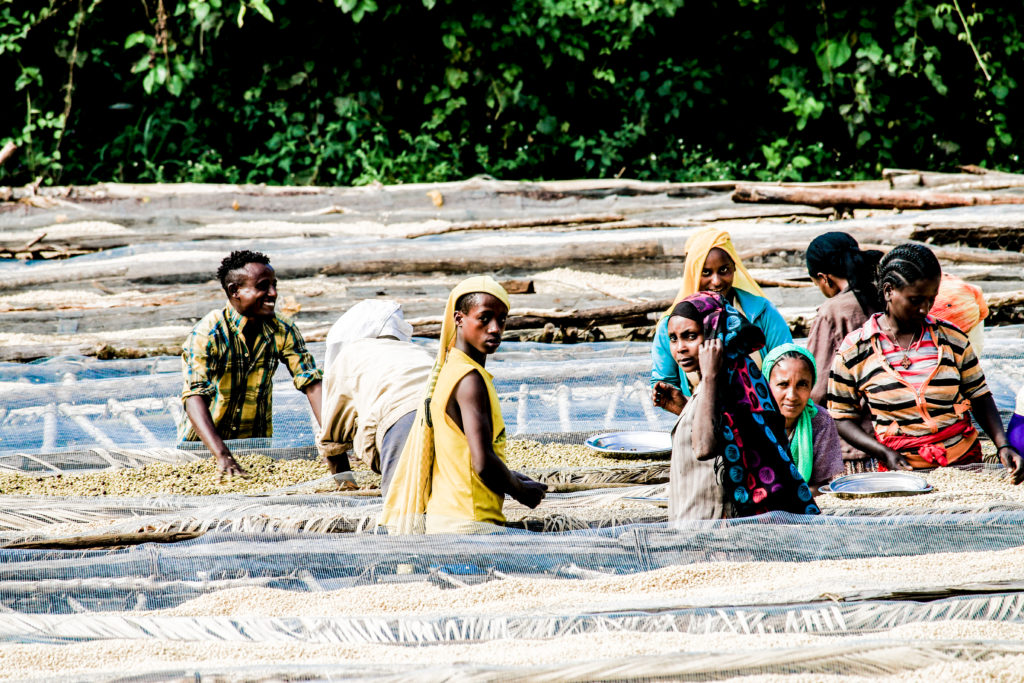
In this article, we’ll talk about our pursuit for our first and most critical goal: getting farmers to a living income. At the same time, you will be able to follow our freshest cherries, from the highlands of Ethiopia, to your cup of Moyee Coffee in the Netherlands or Ireland. Yes, coffee and impact is what gets us out of bed, and no, we will not stop at coffee, but have already jumped into cocoa (more on that in the next articles 
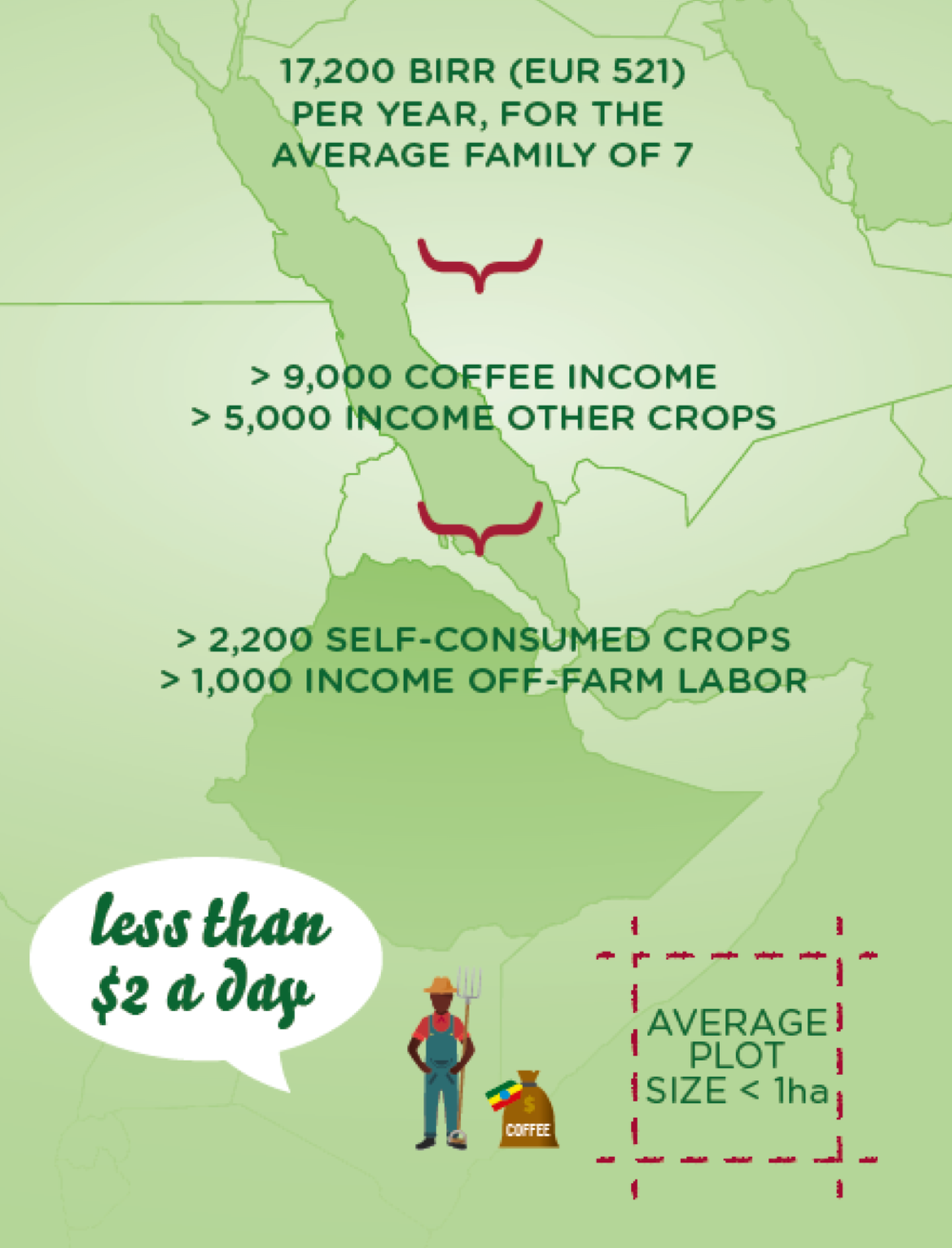
A ‘Living Income Roadmap’ was created, analyzing many possible interventions, and using design thinking, to double farmers’ incomes. FairChain started its ‘Outgrowers program’ already in 2017, training coffee farmers in Suntu and Weleke, on climate-smart agricultural practices.
5 trainings were conducted during 2018, on different topics such as compost making and application, and rehabilitation of coffee trees.
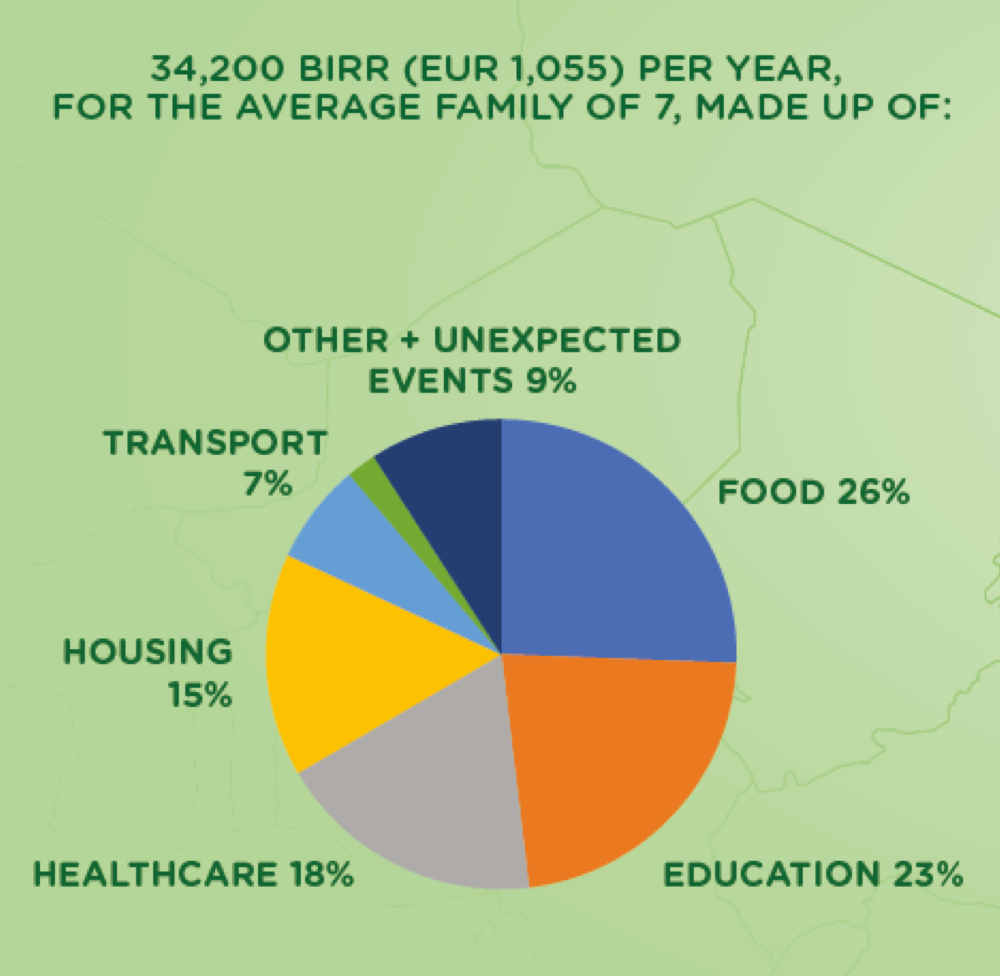
The purchasing of coffee cherries, and the payment of a ‘20% FairChain premium’ on top of the market price, can be seen as just another intervention on the Living Income Roadmap.
EUR 14,000 was the FairChain premium in 2018. 10% was paid directly to each farmer delivering coffee, and 10% was kept in the savings account of the farmer boards of representatives, to cover agronomic trainings costs.
What we learned at FairChain, is that program design and farmer segmentation are critical in actually achieving optimal yields and sustainable farms. Local traditions must be fully understood. People’s behaviours, their mental maps, their immediate needs and their dreams, are all factors to be considered and used in an ideal outgrower program design. Learning and adapting are perhaps FairChain’s most important accomplishments during late 2018 and early 2019.
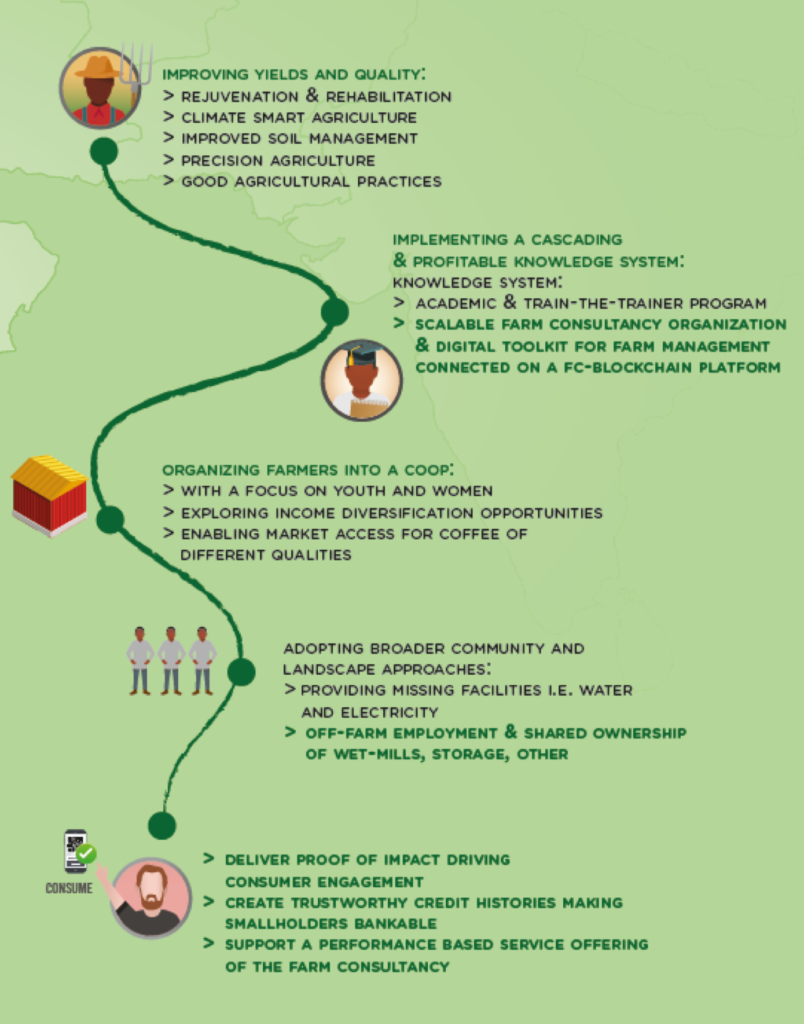
Between 5% to 15% of farmers who attended trainings in 2018 (362 different people in total), actually adopted new skills and know-how on their farms.
Stay tuned, for next articles, covering: Training of Trainers program, wet-mill modernisation project, the FairChain Blockchain Platform and its three DAPPS (hint: DAPP 1 is for traceability and digital transactions), FairChain’s farming as a business approach and a performance-based premium system, and more…
